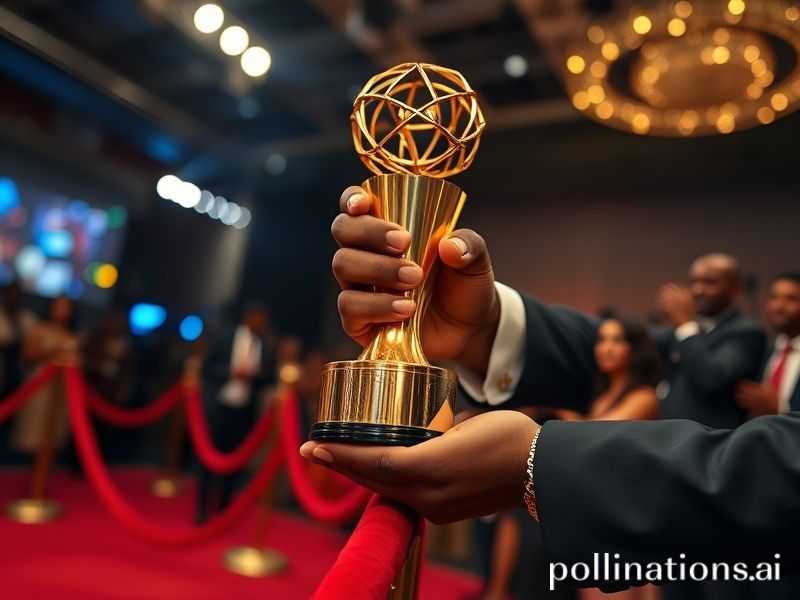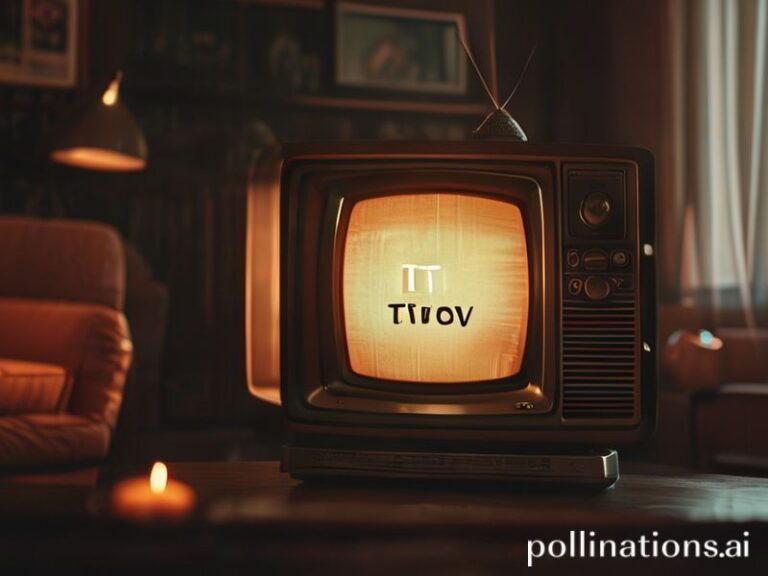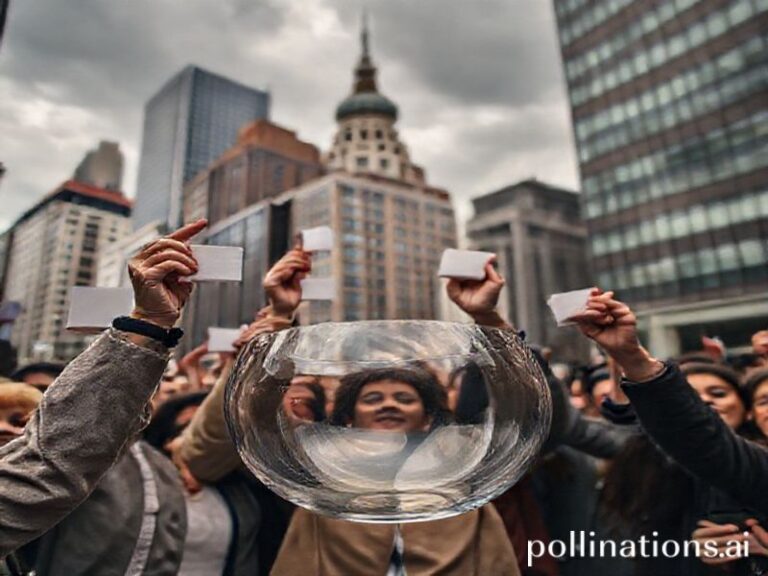NTAs Go Global: How Britain’s Shiniest TV Trophy Became the World’s Guiltiest Pleasure
The NTA Awards: A Glittering Ritual in the Age of Streaming Apocalypse
By “Globetrotting” Gideon Graves, Dave’s Locker Senior Correspondent
LONDON – Somewhere between the Thames and a Pret A Manger that now charges £7 for a sandwich, the National Television Awards unfolded last night with all the self-congratulatory pomp of a Brexit trade deal. Delegations from Seoul to São Paulo tuned in—some via VPN, others via the dark web—to witness Britain’s annual reminder that democracy is alive and well, provided the electorate is limited to people who can be bothered to open the ITV app more than once a year.
The NTAs, for the uninitiated, are what happens when a nation decides its television deserves the same red-carpet foreplay normally reserved for Hollywood’s Dolby Theatre, but with worse weather and slightly more existential dread. Think Oscars without the Dolby cash, Emmys without the Emmys, and you’re halfway to grasping the grandeur. The trophy itself—a silver humanoid figure frozen mid-plie—has become a globally recognized symbol of “mild domestic success,” now spotted on the shelves of Nigerian streaming offices, Korean drama academies, and that one guy in Toronto who insists he “totally had a cameo in Downton.”
Global implications? Oh, they’re there, lurking beneath the sequins. Netflix’s data hawks reportedly monitor NTA wins the way hedge funds watch Fed minutes; a surprise victory for “The Responder” can shift commissioning budgets faster than you can say “regional content quota.” Meanwhile, Chinese platforms—where most British winners will never legally stream—translate acceptance speeches into Mandarin subtitles within 90 minutes, proving that soft power is just intellectual property wearing a dinner jacket.
The ceremony’s international footprint is ironic given Britain’s current diplomatic posture: isolated, rainy, and trying to sell artisanal cheese to countries that already make better cheese. Yet here comes the NTA caravan—complete with Love Island alumni flown in like exotic fauna—offering a masterclass in how to weaponize nostalgia. When “Happy Valley” scooped Best Drama, TikTok feeds from Jakarta to Jalisco erupted with clips of Sarah Lancashire glaring at drug lords, reminding us all that righteous anger is the one truly borderless language.
Backstage, the real geopolitics simmer. Korean reps whispered about co-production treaties while an Argentine showrunner cornered the BBC’s drama chief to pitch a bilingual narco-musical. (“Think Breaking Bad, but with tango and a crippling IMF subplot.”) Everyone nodded politely, secretly calculating how many regional tax credits could be squeezed from the corpse of public-service broadcasting.
Human nature—ever the reliable punchline—was on full display. Winners thanked their families, their agents, and occasionally “the viewers,” who, if global piracy stats are to be believed, include 40 million people who have never paid a TV license in their lives. Losers, meanwhile, perfected the 12-second grimace-smile that translates across cultures: a universal expression of “I will absolutely pretend to be happy for you while plotting your demise in Season Two.”
Perhaps the darkest chuckle came during the “Expert” panel on the future of telly. A Silicon Valley streamer exec declared linear TV “dead,” seconds before ITV’s ad-breaks sold for £200k per 30 seconds—roughly the GDP of Tuvalu. Somewhere in the audience, a Belarusian journalist scribbled notes for a dispatch headlined “British voluntarily watch adverts; scientists baffled.”
As the after-parties spilled into Soho, one could almost hear the planet’s collective shrug: another awards show, another chance to pretend cultural merit is decided by SMS votes and corporate sponsorship. Yet beneath the glitter, the NTAs function as an annual audit of Anglophone soft power—an unholy alliance of binge algorithms, colonial nostalgia, and sheer celebrity inertia.
So what does it all mean, dear reader? Simply this: in a world where democracies wobble and autocrats binge-watch surveillance footage, the NTA Awards remain a reassuring spectacle. Tonight Britain proved it can still manufacture consensus, package it in a tuxedo, and export it worldwide—copyright pending, geo-restrictions apply. The trophy may be silver, but the real metal here is brass neck.







